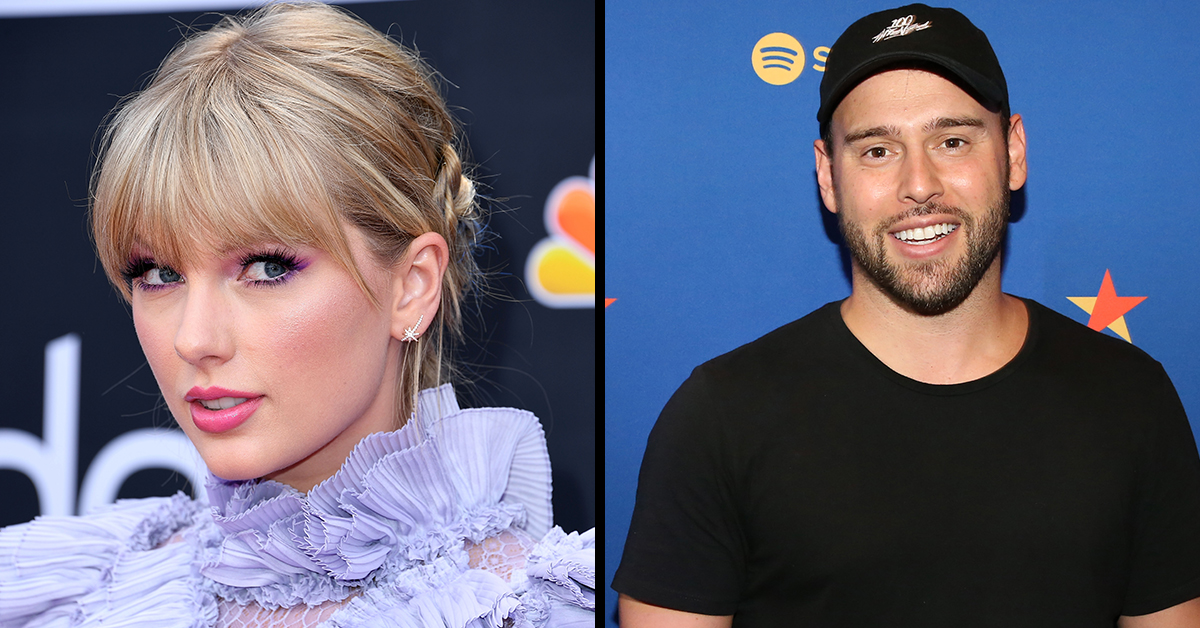The Taylor Swift And Scooter Braun Feud, Explained
Taylor Swift may have made peace with Katy Perry (over fries and a cheeseburger), but she’s traded one feud for another. This time, Swift wrote a long post on Tumblr, explaining that her music has been acquired by Scooter Braun, a music industry tycoon who manages some of the most famous pop artists working today. Swift writes that losing ownership of her music to Braun “worst case scenario,” and describes incidences of “manipulative bullying.”
But who is Scooter Braun? And why is Taylor Swift angry at him?
Braun is a huge player in the music industry. Justin Bieber, Ariana Grande, Kanye West, Demi Lovato, and Carly Rae Jepsen are among Braun’s client roster; Braun is credited with discovering Bieber when he was 12 years old. In addition to managing artists, Braun also owns Ithaca Ventures to back his other business deals. Ithaca has obtained Big Machine Records — and, in doing so, the entire back catalogue of Swift’s music.
It’s clear that Swift and Braun had their disagreements prior to the sale. She explains that Braun “got his two clients”, Bieber and West, to bully her online after Kim Kardashian West leaked a recording of Swift apparently agreeing to lyrics in West’s song “Famous.” Swift posted a screenshot of Bieber’s Instagram post that shows Braun and West FaceTiming with Bieber, accompanied by the caption “Taylor swift what up.” Bieber has since deleted the post, and apologized to Swift in a meandering caption that isn’t quite an apology. “I would like to apologize for posting that hurtful instagram post,” he wrote, before defending Braun and insisting that he “loves” her.
https://www.instagram.com/p/BzWYdS9Hj5R/
Several artists have come to Swift’s defense, including Sky Ferreira, Iggy Azelea, Alessia Cara, and Swift’s longtime producer Jack Antonoff. Singer Todrick Hall, who was previously managed by Braun (and is also a friend of Swift’s), called him an “evil person” and alleged that he may be homophobic.
https://twitter.com/todrick/status/1145479493521420288
Singer Halsey also voiced her support. She wrote that Swift “deserves to own the painstaking labor of her heart.”
🦋 @taylorswift13 pic.twitter.com/1iI2tCr8my
— halsey 🌸 (@halsey) June 30, 2019
Danielle Haim, another friend of Swift’s, called for Swift to be allowed to purchase back her masters.
Danielle Haim posts in support of Taylor Swift on her Instagram story:
“LET TAYLOR SWIFT BUY BACK HER MUSIC YOU F*CKING ASSHOLES !!” pic.twitter.com/0yvXW3Txxp
— Pop Crave (@PopCrave) July 1, 2019
Still, there are two sides to every story. Braun has not responded publicly to Swift, and we’ve reached out for comment. Meanwhile, Demi Lovato affirmed that she stands by Braun, and does not believe that he is homophobic on a post on her Instagram stories.
Braun’s wife, Yael Cohen, blasted Swift in an Instagram post, writing that her “husband is anything but a bully,” and alleges that Swift knew of Big Machine’s sale to Ithaca in advance and declined to obtain her masters. To be clear, in her original post, Swift acknowledged that she knew Big Machine would sell her masters, and declined a deal to “earn” them back by staying on the label.
https://www.instagram.com/p/BzWfMAWAIkE/
Scott Borchetta, who owns Big Machine, also shared his perspective. In a lengthy statement, he writes that “Taylor had every chance in the world to own not just her master recordings, but every video, photograph, everything associated to her career. She chose to leave.” Of Braun, Borchetta said that he “was never anything but positive about Taylor.”
Swift has worked with Big Machine since her debut record, Taylor Swift, was released in 2006. Her 2017 album, reputation, was her last release on the label before she moved to Universal Music Group. Like many artists, her masters were owned by her record label, and subject to acquisition by anyone who coughed up the money. Once Swift left Big Machine, the label decided to sell their company’s assets to Ithaca.
She explains how she tried to retain ownership over her masters. “For years I asked, pleaded for a chance to own my work,” Swift wrote on her Tumblr post. “Instead I was given an opportunity to sign back up to Big Machine Records and ‘earn’ one album back at a time, one for every new one I turned in.” Clearly, this was a deal that Swift did not feel was fair, and says she made the “excruciating choice to leave behind my past. Music I wrote on my bedroom floor and videos I dreamed up and paid for from the money I earned playing in bars, then clubs, then arenas, then stadiums.” We’ve reached out to Taylor Swift for comment.
This is a developing story.

